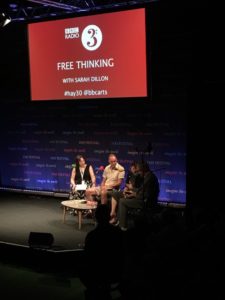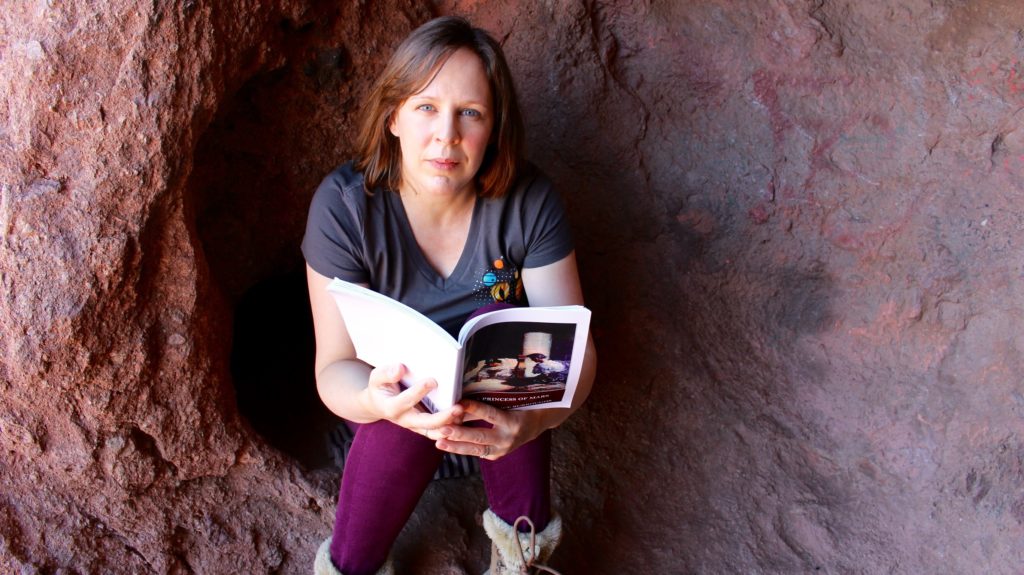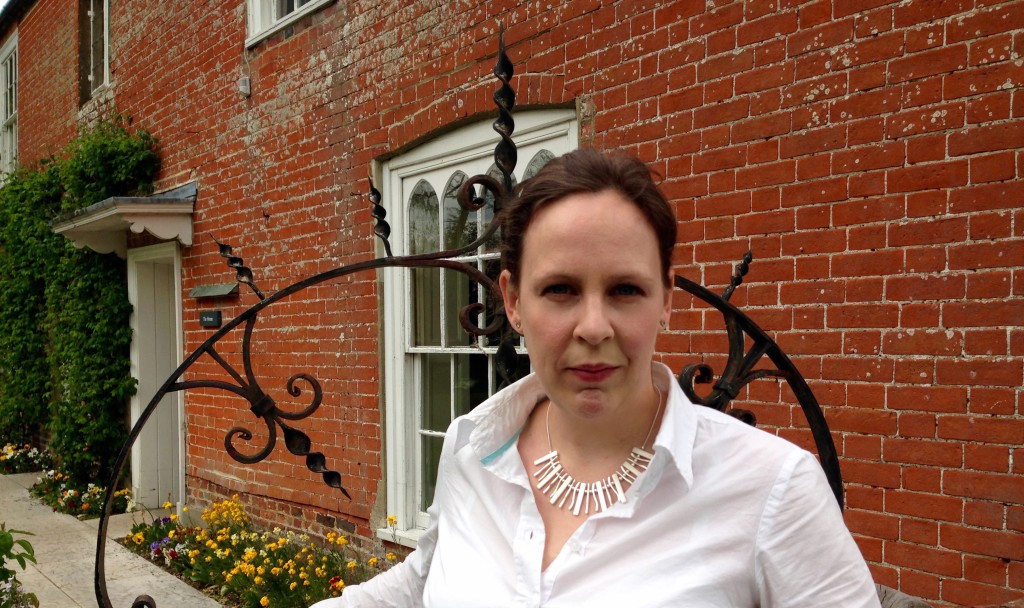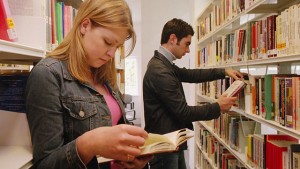On Sunday 28th May, I had the pleasure and the privilege to present a special edition of BBC Radio 3’s Free Thinking programme – Writing and Rewriting the Past – live at the Hay Festival, as part of the BBC’s line-up for the 2017 event. Sebastian Barry, Jake Arnold and Madeline Thien joined me to talk about historical fiction in the age of “alternative facts”. It was a deeply stimulating, sometimes moving, discussion, with all in agreement that Madeleine stole the show. If you haven’t read her novel, shortlisted for the 2016 Man Booker Prize and 2017 Bailey’s Prize for fiction, Do Not Say We Have Nothing, go and seek it out now – you’ll be glad you did. The programme was broadcast on Thursday 1 June at 10pm on BBC Radio 3 and is available here as an Arts and Ideas download.
Category Archives: Media
‘Seeing is Believing’, ‘We Are the Martians’ Episode 1, 11am Monday 6th March, BBC Radio 4
The arrival of Spring sees Radio 4 go into full Martian mode for a festival week celebrating the red planet. To kick things off I’m presenting the first of three documentaries on our scientific and literary imaginings of Mars…Come with me to Mars. A planet we have been been dreaming and writing about for centuries. From the Old Mars of canals and fantastic beasts, to utopias projected by feminists, bolsheviks and even druids. You can have any Mars you want, at least until we get there and Mars is finally terraformed and settled as a new Earth. Join me for Seeing is Believing – the first episode in a three part series, We Are the Martians – on Monday 6th March at 11am on BBC Radio 4, and available to listen again on the BBC iplayer.
Literary Pursuits Returns to BBC Radio 3
The third and fourth episodes in my literary detective documentary series for BBC Radio 3 – Literary Pursuits – will be broadcast to bracket the Hay Festival at 6.45pm on Sunday 29th May and Sunday 5th June. Episode 3 investigates the story behind the posthumous publication of Jane Austen’s Persuasion whilst episode 4 travels to Dublin to unravel the mystery behind a singed proof copy of James Joyce’s Dubliners, dated 4 years before the book’s publication. In previous episodes I investigate Charles Dickens’ Great Expectations and Jean Rhys’ Wide Sargasso Sea. All the episodes in the series can be listened to on the Literary Pursuits page of the BBC iplayer and my thoughts on the series can be found here.
Why Close Reading? Series 2 begins on BBC Radio 4’s Open Book
The second series of my Close Reading feature on BBC Radio 4’s Open Book has kicked off in 2016 with two readings of novels about as different as can be. In the first episode, I try to figure out if you can close read comedy without taking all the fun out of it – my case study is Stella Gibbons’ comic classic, Cold Comfort Farm. In stark contrast, in the second episode, I take on J. M. Coetzee’s disturbing novel Disgrace, looking at how point of view in the narration of a rape reveals the ideas about complicity and denial at the heart of the novel. The series will continue over the next 6 months with episodes on Raymond Chandler’s The Big Sleep and Toni Morrison’s Beloved next in line. If you want to catch up with episodes from Series 1, they’re all gathered together on my BBC Close Reads page.
Since the first Series, I’ve had lots of conversations with people about close reading and why I believe it’s such an important way to approach literary texts both inside and outside the academy. So I thought with the launch of the second series it might be a good time for a blog making my case…
When I turned 16 my Dad gave me a copy of The Collected Dorothy Parker and I fell in love. She’s just brilliant. Parker’s very well known on the other side of the Atlantic, but not so much over here. When I introduce her to people I describe her as a kind of American Oscar Wilde. She’s very funny, darkly so. She’s perhaps most famous for her aphorisms that slip off the tongue but slice their targets – the one I always remember is ‘That woman speaks eighteen languages and can’t say “No” in any of them’.
Parker’s writing, like Wilde’s, is perfect, shinny, and smooth. What we see in it is a brutally honest reflection of ourselves and our societies. So she’s a very interesting example in relation to close reading. Because close reading requires depth. In any first reading, you skip along the surface, you’re drawn in by the plot, the emotion, the characters. You read quickly and you are absorbed. If a book doesn’t do that to you, it’s not working. And many people, to be fair, are happy to stop there. But I don’t think everybody is, or at least not all the time. And don’t think it’s just academics or students that want or need to know more, that say, ‘Hold on – this book’s made me laugh, or made me cry, or kept me riveted all night when I should have been asleep. How did it do that? How did words, just words, make me feel like that?’.
And that’s where close reading kicks in. You go back, and you go slowly. You look at just one passage, sometimes even just one line. And you get everything you can out of it. Which words have been chosen – why those exact ones not other ones? How have they been put together? Is there repetition? Is there emphasis? Who’s speaking? Whose thoughts do we have access to? There’s almost no end of these type of questions. But if you ask them, if you keep asking them, at some point, there’s this kind of moment, like twisting a kaleidoscope, when you see the pattern. And that moment is like discovering how a magic trick’s done. Suddenly, you understand, or at least you start to understand, how the book made you feel the way it did. And, even more importantly, you understand how the smallest detail is connected to the largest theme. And that’s really exciting. The book takes shape for you in a way that it hasn’t done before. Close reading exposes its workings – it’s like seeing a really complex clockwork mechanism with the front taken off. But that doesn’t ruin it for me. Because you don’t stop there. You go back and read for a third time and on that reading you’ve got the combination of the speed of the first reading, and the insight of the depth of the second close reading. And that third reading is something truly special.
‘A third reading?!’ I hear you exclaim in disbelief. Yes, why not. I know we’re all busy, that our lives are scheduled from morning to night. But that’s another reason why close reading’s important – it’s almost a kind of political act. It stands against the urgent speed and constant movement of contemporary life. It says no, there is power, there is benefit in going slowly, in reading closely and carefully. When Ali Smith was on Open Book in September 2014, she made exactly that plea for her own work – take time with it, she said, and it will nourish you.
Close reading also nourishes the writer, because it gives credit where credit is due. Just like magicians, writers don’t really want you to see the labour that’s gone into their work – it wouldn’t be enjoyable, it wouldn’t be working its magic, if you could. Ernest Hemingway said ‘it’s none of their business that you have to learn to write. Let them think you were born that way’. But at the same time writers actually do want you to know that – because they work really hard to get their prose just right, to get the exact effect they’re aiming for. Dorothy Parker’s prose for instance, shows no sign of effort, but in fact she edited and edited to get it that way: ‘I can’t write five words but that I change seven’ she said. Close reading is a compliment to writers – it’s saying, ‘You spent time on this, so I’m going to spend time on it too’. And that’s pleasurable and rewarding for both readers and writers.
New BBC Radio 3 Sunday Feature Documentary Series: Literary Pursuits
My scholarship and my creativity have been put to a new test over the past 6 months as I’ve been making the first two episodes in my new Sunday Feature Series for BBC Radio 3: Literary Pursuits. I think radio and television confront a real challenge when it comes to literary broadcasting – how do you avoid succumbing to the cult of the author and actually stay in contact with what people really love and want to hear and know about: the text?
Academically, I was schooled in Cambridge practical criticism and poststructuralist literary theory – a not incongruous combination since both approaches hold that the text alone is a sufficient object of study, that the words on the page, if paid close enough attention to, tell you everything you might want to know. Of course, these are just two schools of thought amongst the many approaches one finds in academic literary criticism: historicism places the text within its cultural context of production; biographic criticism reads it via its connection with the author’s own life; the study of material texts looks at what we can learn from the physical histories of texts as they move from the first handwritten jottings, through annotated typescripts to final published versions (with many stages in between). If you were to pick up any introduction to literary criticism and theory, you might be forgiven for thinking that these approaches are mutually exclusive, that never the twain shall meet. But as I’ve moved further along in my career, I’ve realised that some of the most powerful literary criticism combines two or more of these approaches. That all of them alone, but more so in combination, can open up works of literature in revelatory ways.
Having come to that conclusion in my academic work, I was delighted to be given the opportunity to try out this idea in broadcasting. What would a radio programme look like if it, too, combined these seemingly different approaches to texts? Could we take a great work of literature and weave together close attention to the themes as well as to the style, form and technique, with investigation into the author’s life and times, and archival research into the book’s textual history? Yes, I thought we could, but how could we do all that and meet the cardinal rule of radio broadcasting – telling a good story?
That’s where the genius of my producer came in – we would turn it into a detective story. So that’s just what we did. In my Literary Pursuits episodes I start with a mystery that I want to solve: in the first, it is why did Charles Dickens change the ending of Great Expectations, right at the last minute?; in the second, it is why does it take nearly a quarter of a century for Jean Rhys to publish Wide Sargasso Sea? Each of these mysteries sets me off on a quest to find out the story behind the story, to follow the clues to discover how great works of literature were written. And of course, those clues are thematic, stylistic, biographical, historical, material and more – all of these diverse literary critical methodologies become my investigative tools, and all are needed to solve the textual mystery.
I have learnt so much over the past six months, about the joys of working closely, creatively and collaboratively with a brilliant producer, but also about these two works of literature which I thought I already knew so well. The Great Expectations episode was picked out as a choice of the day for Sunday in this week’s Radio Times, and the Series is featuring in the radio review section of The Times on Saturday. So it definitely seems to have caught the imagination of some journalists out there. When it’s broadcast, I hope it brings as much pleasure and knowledge to its listeners as I had and gained making it.
The new page for the Series is here, where you can also listen back to episodes via the BBC iplayer if you miss the first broadcasts. It begins with Great Expectations on Sunday 10th January, followed by Wide Sargasso Sea on the 17th. Enjoy!
BBC Radio 4 Open Book Close Reads Page Launched
Series One of Close Reading came to a close on Monday with the final episode on Pat Barker’s Regeneration. I’ll be returning to the Radio 4 airwaves with Series Two in the autumn, but if you are getting withdrawal symptoms in the meantime all the episodes from Series One have been usefully gathered together on my new BBC Radio 4 Open Book Close Reads page. If you’ve enjoyed the first series, and especially if you, or your book club, have decided to have a go at close reading as a result, I’d be delighted to hear your feedback on the effects of listening to the episodes and on the outcomes of your close reading experiments. Please feel free to send your responses to Series One to me.
Why We Read, Open Book, BBC Radio 4
On Monday 10th August Open Book steps into Radio 4 limelight with a special 45 minute feature show in the Start The Week slot on ‘why we read’. Along with how we read, why we read is a question I’m very much interested in and one I hope to return to in a year or so when I resume work on a project I began at St Andrews on what and why scientists read. In the meantime, I’ll be listening with interest to Mariella and her guests on Monday, and I am delighted that the final episode in my current series of ‘Close Reading’ will be included in the show.
BBC Radio 3 Proms Extra Events
The Proms season is upon is and it’s been my pleasure to try my hand at the presenting game. It’s a very different experience asking the questions to being the one answering them, but I enjoyed it just as much, if not more. To be fair, my first gig could not have been easier since my interviewee, Steven Price, may well be an Oscar winner for his score for Alfonso Cuaron’s Gravity but he’s also a very lovely guy who’s retained the down-to-earthness of our shared Northern roots. Steven and I talked about film music, Holst and the anxiety of influence in a Proms Extra live audience event which is then produced for broadcast in the interval of that evening’s Proms Concert. With my presenter appetite whetted, I’m looking forward to my next Proms Extra event on Monday 31st August when I’ll be interviewing the great Hermione Lee about Willia Cather, on the centenary of the publication of The Song of the Lark. If you’re free, come and join us at the Royal College of Music, or tune in that evening for the interval broadcast.
BBC Radio 3 Free Thinking: The Curious Combination of Muriel Spark and Channel 4’s Humans
Before he became famous as the founder of modern structural linguistics, Ferdinand de Saussure had this crazy side project looking for anagrams hidden in Latinate poetry, during which time the more he looked for connections, the more he found them. Saussure eventually abandoned the project but there’s a great book by Jean Starobinski called Words Upon Words that presents Saussure’s early research and recounts the story of his obsession. I came across it a long time ago when working on my PhD – and I discuss it in one of the chapters of my first book, The Palimpsest – but it always comes to mind again when unexpected connections present themselves to me. It always makes me wonder, as Saussure did, whether the connections are really there, or whether they are only there because I’m creating them. Over the years, I’ve become convinced that most frequently it is the latter – the connections only exist because you create them. But rather than this predicament leading me to question my sanity, I’m now convinced that this fortuitous and unanticipated connectivity is in fact the lifeblood of intellectual enquiry and, in fact, of any other form of creativity.
What’s prompted me to remember Saussure and his anagrams this week is an invitation I received from BBC Radio 3’s Free Thinking to go on the programme to talk to Rana Mitter, along with Laurie Sansom, about Muriel Spark’s The Driver’s Seat and Laurie’s new adaptation of it for the Scottish National Theatre. Having just reread The Prime of Miss Jean Brodie for my Open Book Close Reading series, it was a pleasure to be prompted to reread another Spark text that I first read in the dim and distant past. It’s a weird and disturbing novella, with a dark side that far exceeds the sinister manipulations of Miss Brodie. Laurie Sansom says that he was prompted to develop the first stage adaptation because it seemed essentially dramatic. And he’s absolutely right: so much of the prose in fact reads like stage directions. This is a novella about setting, actions, and objects, with a third person narrator that knows what happens in the future but has no access at all to what’s inside the female protagonist Lise’s head. As we were talking on the programme, it occurred to me what a radically but problematically feminist text this is – it’s a biting satire on the conventional tropes of woman as victim. It eschews the immersion in psychological complexity of classic texts of female madness such as Charlotte Perkins Gilman’s The Yellow Wallpaper. But the control she takes of her own fate – she seeks out and orchestrates her own murder – does not extend to an ability to control her sexual violation. Only through luck does she escape from two attempted rapes, and the man she has selected as her killer rapes her as well, despite her express wishes that his violation remain purely murderous, not sexual. We never find out what’s going on in Lise’s head, and that’s the point – that’s what renders her powerful rather than vulnerable; orchestrator rather than victim. But that power is also continually threatened by the unavoidable vulnerability of her female body. Which makes this a text about women and our bodies – to what extent we can control them and to what extent, whatever the defences we put in place with regard to our minds, we remain vulnerable in our embodiment.
Which leads to the unexpected connection. Giuseppe Patroni Griffi’s 1974 film adaptation of Spark’s novel adheres remarkably closely to the literary original. But it adds a curious uncanny touch in the opening scene – Lise is trying on a dress in a shop, as in the book, but in the film the shop is densely populated by naked female mannequins whose faces are, for no explicable reason, wrapped in foil. It’s a brilliantly visual evocation of my point above, which sets the tone and theme for the rest of the film. But, and here’s the connectivity moment, since I was going to be in the studio anyway, a day or so later, the producer asked me if I wouldn’t mind also joining in a different conversation on the programme – a short engagement with the new Channel 4 Series Humans, as a follow on from discussion with Laurence Scott about his new book The Four-Dimensional Human. So I dutifully sat down to watch the first episode of Humans only to discover that my main problem with it (and there were many problems) was its uncritical engagement with female embodiment. And of course it’s about synthetic humans, animate mannequins. I wonder if my response to Humans would have been different if I hadn’t just reread The Driver’s Seat, or if I hadn’t just discussed the very problem regarding cinematic and televisual representations of AI and women a week or so ago at the Southbank? Possibly. My concern might have been more about the awkward way in which the first episode of Humans stuffs itself with previous SF material without any knowing reference to the wealth of its generic heritage (apart from one now clichéd allusion to Asimov and his laws of robotics). But what most concerned me in the first episode was the uncritical fetishisation of the female robot – which we’ve seen already this year in Ex Machina – and the way in which the episode indulged in anthropocentric navel-gazing rather than a proper and challenging engagement with what I have no doubt will be the radically derailing and thoroughly alien outcomes if scientists ever do produce artificial intelligence to challenge our own. When are male writers and directors going to realise that if they want to push their imaginations into the future, it might be quite helpful to start by reimagining the gender stereotypes and norms of the present? We had the female sexbot over a hundred years ago in Metropolis; please let’s have the creativity to consider that if the singularity does happen, gender is going to be the last thing on the AI’s body or mind.
Close Reading Continues…
All is as been rather quiet on the public engagement front since my first full academic year at Cambridge began back in October. But whilst in person I have been absorbed by the pleasures and demands of teaching and administration, the ‘Close Reading’ broadcasts for BBC Radio 4’s Open Book programme have been going out steadily every month or so and have been received very well by the public, which is wonderful. The fifth episode will be broadcast this Sunday 24th May, in which I wrestle with a challenging passage from near the opening of Ian McEwan’s disturbing novel Enduring Love. Check out my radio pages for links to all the aired broadcasts in the Close Reading Series, covering Elizabeth Bowen, Aldous Huxley, Muriel Spark and Katherine Mansfield. The final broadcast in July will take a close look at Pat Barker’s Regeneration.








